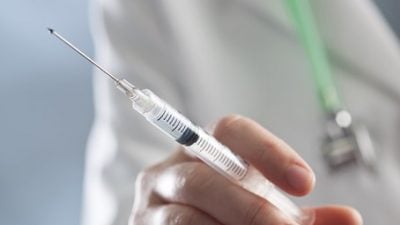Emergency Use Authorization: The ‘New Normal’ for Pharma Vaccines?

All Global Research articles can be read in 51 languages by activating the “Translate Website” drop down menu on the top banner of our home page (Desktop version).
***
A recent Oxford University press release announced that scientists working at its Jenner Institute have succeeded in developing a vaccine against malaria. Known as R21/Matrix-M, the vaccine was tested in a 12-month trial involving 450 young children in Burkina Faso and is claimed to have shown up to 77 percent efficacy. Quoted in the British media, Professor Adrian Hill, director of the Jenner Institute, indicated that he might apply for emergency use authorization for the vaccine, thus bypassing the need for full clinical trials. Having already obtained such authorization for the AstraZeneca COVID-19 vaccine, which was similarly developed at the Jenner Institute, Hill’s intention to obtain this for the malaria vaccine suggests that emergency use applications are becoming seen as the ‘new normal’ in the field of vaccine development.
A life-threatening disease caused by parasites that are transmitted to people through the bites of infected female Anopheles mosquitoes, the World Health Organization estimates there were 229 million cases and 409,000 deaths from malaria worldwide in 2019. The search for a successful vaccine against the disease has been going on for decades now. A vaccine developed by GlaxoSmithKline with funding from the Bill and Melinda Gates Foundation has been in use in parts of Ghana, Kenya, and Malawi for the past few years, but it requires four doses and has low efficacy. It also has serious safety concerns, including seizures and a tenfold increased risk of meningitis. An effective, safe approach to preventing malaria without the risk of side effects is therefore urgently needed.
Professor Hill suggests that the Jenner Institute will probably ask regulatory bodies in the UK or Europe for a scientific opinion on the new malaria vaccine, after which it would apply to the World Health Organization for approval for use in Africa. “They did Covid in months,” Hill argues, “why shouldn’t they do malaria in a similar length of time?” Quite likely, this line of thinking could become a standard argument used when pharma companies are pushing for emergency drug and vaccine authorizations.
Fast-tracking vaccines for COVID-19 variants
Following their decision to give experimental COVID-19 vaccines emergency use authorizations, regulatory bodies around the world are already saying that future vaccines adapted for coronavirus variants will not be required to undergo extensive safety testing. In the United States, the Food and Drug Administration (FDA) has specifically stated that lengthy randomized controlled trials will not be needed. European regulators have similarly said they will fast-track approvals of coronavirus vaccines that are adapted to combat mutations. Seemingly, therefore, preparations are underway to coerce the world into accepting annual COVID-19 vaccinations and emergency use authorizations as the norm.
None of the above should be taken as suggesting that our organization, the Dr. Rath Health Foundation, completely opposes all forms of vaccines. We recognize that vaccines based on peptides, short chains of the naturally occurring amino acids found in food, have potential in the prevention and control of diseases such as cancer, for example. Scientists at the Dr. Rath Research Institute in California have already published pioneering work in this area.
But the increasing reliance on emergency use authorizations for new pharmaceutical vaccines involves taking an enormous gamble with public health. Perhaps recognizing this, millions of Americans are reportedly now skipping their second doses of COVID-19 vaccines. Large numbers of people in Europe also seem unlikely to accept them. A recent survey found almost four in ten people in France and 23 percent in Germany say they definitely or probably won’t get vaccinated.
Patients have a right to expect that the preventive health therapies they use are safe. Putting the interests of drug companies and their stakeholders before public safety does nothing to achieve this. The growing reliance on emergency use authorizations should be a warning sign to us all.
*
Note to readers: please click the share buttons above or below. Forward this article to your email lists. Crosspost on your blog site, internet forums. etc.
This article was originally published on Dr. Rath Health Foundation.
Executive Director of the Dr. Rath Health Foundation and one of the coauthors of our explosive book, “The Nazi Roots of the ‘Brussels EU’”, Paul is also our expert on the Codex Alimentarius Commission and has had eye-witness experience, as an official observer delegate, at its meetings. You can find Paul on Twitter at @paulanthtaylor

